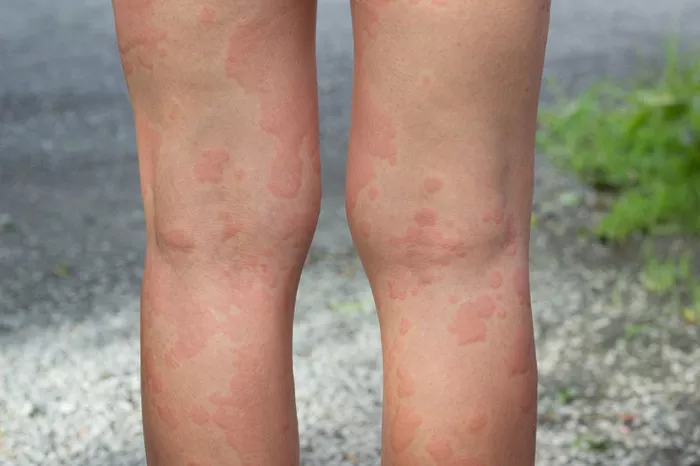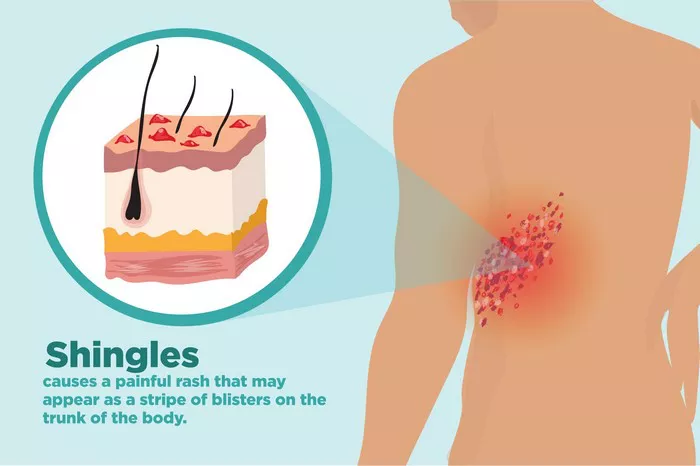Hives, also known as urticaria, are an uncomfortable skin condition characterized by red, itchy welts that can appear anywhere on the body. For many sufferers, hives seem to worsen during the night, disrupting sleep and causing significant distress. Understanding why this happens is crucial in managing the condition and finding relief.
SEE ASLO:What Is Cholinergic Urticaria
Importance of Seeking Medical Advice
Living with hives can be a frustrating experience, especially when the symptoms intensify at night. The itching, burning, and discomfort can be overwhelming, making it difficult to get a good night’s sleep. If you find that your hives worsen at night, it’s essential to seek professional medical advice. A doctor or allergist can help diagnose the root cause of your hives and develop a personalized treatment plan. Whether the hives are a result of an allergy, an autoimmune disorder, or another underlying condition, professional evaluation is crucial in managing the symptoms effectively.
Common Factors
Several factors can contribute to the worsening of hives at night. Understanding these can help in managing and reducing symptoms.
Stress and Anxiety:
Stress and anxiety are well-known triggers for hives. During the day, various stressors can cause your body to release histamine, a chemical involved in the body’s immune response. At night, when the mind quiets down, residual stress can still cause the body to release histamine, leading to the worsening of hives. Additionally, anxiety about not being able to sleep due to itching can create a vicious cycle, further exacerbating the symptoms.
Changes in Body Temperature:
As we sleep, our body temperature naturally fluctuates. This, combined with warmer bedding or a heated room, can cause the skin to become more irritated and inflamed. The warmth can dilate blood vessels, leading to increased blood flow to the skin, which can exacerbate the itching and swelling associated with hives.
Hormonal Fluctuations:
Hormonal changes that occur during sleep can also influence histamine levels in the body. For example, cortisol, a hormone that helps control inflammation, naturally decreases during the night. Lower cortisol levels can result in an increased histamine response, making hives more severe.
Sleep Position:
The position in which you sleep may inadvertently put pressure on areas affected by hives, causing them to become more noticeable and itchy. For instance, sleeping on your side or stomach may apply pressure to the skin, irritating the welts and leading to more discomfort.
Dietary Factors:
Certain foods consumed before bed can trigger or worsen hives. Spicy foods, alcohol, and even some medications taken at night can lead to a histamine release, making symptoms worse. Keeping a close eye on your diet, particularly in the evening, can be crucial in managing nighttime hives.
Practical Tips and Lifestyle Changes
Managing nighttime hives involves a combination of stress management, environmental adjustments, and careful attention to diet. Here are some practical tips:
Stress Management Techniques:
Stress can significantly impact the severity of hives. Incorporating relaxation techniques into your daily routine, such as deep breathing exercises, meditation, or yoga, can help manage stress levels and reduce the likelihood of nighttime flare-ups. Creating a calming pre-sleep routine can also help in minimizing anxiety and promoting better sleep.
Maintain a Cool Sleep Environment:
Keeping your sleeping environment cool can prevent body temperature fluctuations that exacerbate hives. Use lighter bedding, avoid heavy blankets, and keep the room at a comfortable, cool temperature. Additionally, avoiding warm showers or baths before bed can help prevent your body temperature from rising, which can trigger hives.
Minimize Pressure on Hives:
Consider your sleep position and how it might affect your hives. Sleeping on a supportive pillow and using loose-fitting, breathable pajamas can reduce pressure on affected areas, minimizing irritation. If possible, sleep on your back to avoid putting direct pressure on any welts.
Diet Adjustments:
Identifying and avoiding potential food triggers before bed is another key strategy. Keep a food diary to track what you eat and how it correlates with your symptoms. Common triggers include spicy foods, alcohol, and certain preservatives. Avoiding these in the evening can reduce the likelihood of nighttime hives.
Over-the-Counter Antihistamines:
For immediate relief, taking an over-the-counter antihistamine before bed can be helpful. These medications work by blocking the effects of histamine, thus reducing itching and swelling. However, it’s important to consult with a healthcare provider before starting any new medication to ensure it’s safe and appropriate for your situation.
Concerns About Underlying Conditions
While hives are often a benign, albeit uncomfortable, condition, they can sometimes be a symptom of an underlying medical issue. Autoimmune disorders, infections, or even chronic stress can contribute to recurrent or worsening hives. If your hives persist despite home remedies and over-the-counter treatments, or if you experience other symptoms like difficulty breathing or swelling in other parts of the body, it’s crucial to seek medical evaluation. A proper diagnosis is essential in ruling out any serious conditions and ensuring that you receive the appropriate treatment.
In conclusion, while nighttime hives can be particularly distressing, understanding the factors that contribute to their worsening and taking proactive steps to manage them can help you achieve better sleep and overall comfort. Remember, seeking professional medical advice is always the best course of action when dealing with persistent or severe symptoms.
Related Topics:

























